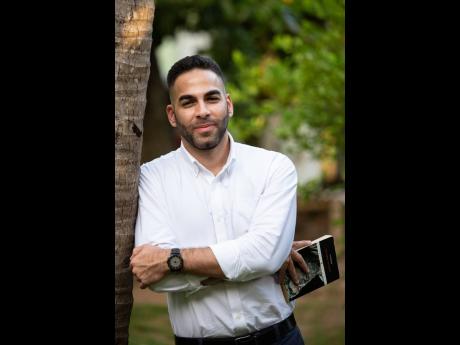CAPRI researcher: Social interventions in gang-infested areas a waste of time
Denham Town youth club leader disagrees
The Senataz Youth Club in Denham Town, one of the seven zones of special operations (ZOSOs) declared by the Government, last Thursday hosted a street dance on Regent Street in Kingston, where both gangsters from the community and their arch nemeses from Tivoli Gardens attended.
It is the kind of event that reportedly had not been seen for years and one that at any time could have turned deadly, especially following the home invasion and murder of revered Denham Town footballer Rafiek Thomas late last month.
Thankfully, however, there were no clashes, just fun and entertainment, reported Senataz President Robert Carr, who believes that the dance has provided another stepping-stone in brokering peace among the two rival sets of gangsters bent on spilling blood – even that of children.
Carr has the same sentiment about a football competition that has been hosted in the community for the last four years as well as a slew of other social events he said were aimed at inviting unity and resolving conflict. He hopes that such unification will spur more structured social-intervention programmes, such as agriculture, egg, chicken, and block production, that will generate income and keep unattached youths in the community occupied and away from the gun.
However, Alexander Causwell, the lead researcher for the Caribbean Policy Research Institute’s (CAPRI’s) most recent project – Groundwork for Peace: Reorienting Zones of Special Operations (ZOSO) for sustained Violence Reduction” – believes that supporting such initiatives from a policy perspective is a waste of time and money.
In fact, Causwell argues, all of the so-called “soft interventions” – skills-training programmes, parenting workshops, conflict-resolution programmes, behaviour-change interventions that try to stop youngsters from joining gangs, and at-risk youth programmes – are contributing little to the overall goal of violence reduction.
Going further, he said events such as round robins, football competitions, and sports days are meaningless to the fight.
“Our analysis is that the social interventions are not going to do anything. They will not get rid of the problem. Because the problem is not the kinds of things that social interventions are aiming to solve,” argued Causwell, noting that the violence problem in the island’s ZOSOs is not poverty or a lack of education, which he claims has nothing to do with the gangs in the area.
“They also add complexity to ZOSOs that make them last longer than they need to. We are saying they should deprioritise these and focus on the land-tenure regularisation and layout of these communities,” he said, noting that irregular land tenure makes communities informal and, therefore, havens for criminal gangs.
Formalise communities
Land-tenure regularisation includes giving people titles to land that they have lived on for decades and removing persons living in environmentally unsound areas unsuitable for land titles. It is costly, he said, but affordable if the money slated for social intervention initiatives is channelled differently.
“The third reason why we should deprioritise social interventions is to divert the resources to land-tenure regularisation. Because right now, you are spending money on social interventions that aren’t going to do anything, and you are ignoring the key change, which is to formalise communities,” he argued.
Carr, however, has a different perspective.
“The other day I wasn’t going to do it (football competition) again, but when I go on some of the corners with the shooters, they asked me when the competition was going to start. So they really get distracted by these sorts of activities,” he charged.
“When the ball is playing or when you have certain events, at least he can bush out and go to match. And if the match finishes late in the night, all he is really thinking about now is to find a woman and go home,” he argued. “ So it gives them something else to think about.”
In addition, such social activities foster trust among gangsters who have been warring for many years. Once there is trust among the youths, it makes for peace and easier assistance from outside agencies, he added.
Carr said he would like to see a Denham Town where youngsters are engaged in several manufacturing industries.
The CAPRI study evaluates the 2017-launched government ZOSO initiative, critiquing the “hearts and minds” approach, suggesting that it overlooks violence by organised gangs in informal communities. It also posits that the ZOSOs’ current focus on social development and infrastructure does not adequately address gang strongholds, even as it advocates for land tenure regularisation in areas.
The report recommends that the Government revise the current ZOSO strategy to a three-pronged approach targeted at formalising informal and semi-formal communities; and that it continue localised states of emergency or similar measures to temporarily detain known perpetrators of violence.

